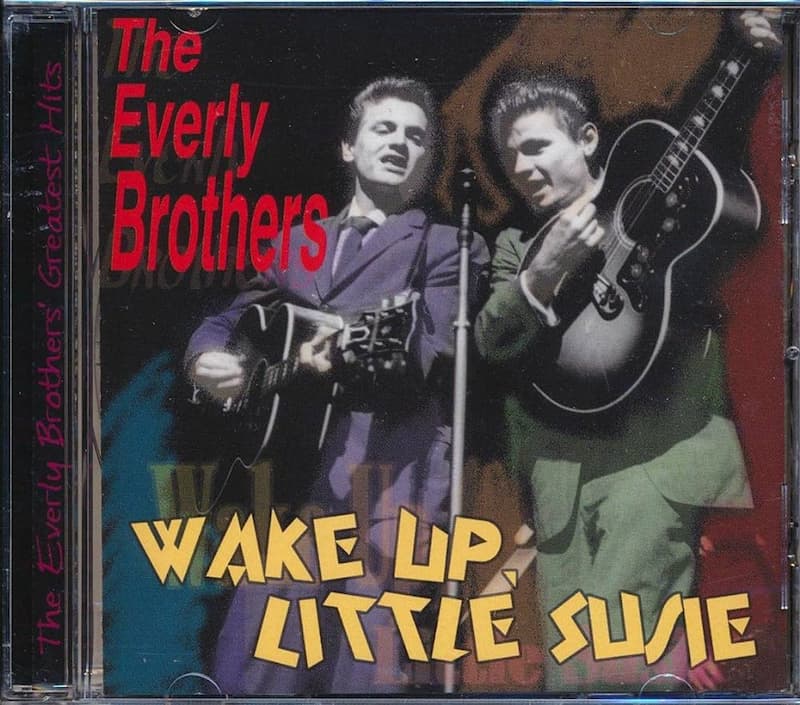
It was a sound that sent shockwaves through the heart of conservative America, a sweet melody masking a story so scandalous it was ripped from the airwaves. In 1957, a storm of controversy erupted over a seemingly innocent tune about a teenage date gone awry. That song was “Wake Up Little Susie,” and for the fresh-faced Everly Brothers, it became both a monumental hit and a source of incredible backlash.
Imagine the scene: a quiet drive-in movie, a young couple, and the sweet oblivion of sleep. But the dream turns into a nightmare. The lyrics paint a picture of sheer panic. “The movie’s over, it’s four o’clock, and we’re in trouble deep.” For young Susie and her date, the world has ended. In an era when a woman’s reputation was paramount, being out all night with a boy was social suicide. Their goose wasn’t just cooked; their entire reputation was shot. The desperate refrain, “What are we gonna tell your mama? What are we gonna tell your pa?” became a cry of desperation that resonated with a generation of teenagers terrified of crossing societal lines.
While the youth saw their own fears reflected in the song, the establishment heard something far more sinister. In the city of Boston, radio station executives were appalled. To them, the lyrics didn’t just suggest a missed curfew; they implied that the young couple had spent the night together. The insinuation was too much to bear. In a move that would seem unthinkable today, the song was banned from their radio stations, deemed a corrupting influence on the local youth. This act of censorship, however, only fanned the flames of the song’s popularity, turning it into a forbidden anthem.
Behind this firestorm was a grueling creative process, a testament to the effort it took to create a hit. The song was the brainchild of the legendary husband-and-wife songwriting team, Felice and Boudleaux Bryant. It was a difficult birth, a true “labor of love.” The late Boudleaux Bryant was once quoted in an interview with Country Music People, recalling the intense struggle: “We persevered with ‘Wake Up Little Susie’ for many hours… I started writing one night, kept trying to get my ideas down, but it just wouldn’t happen. Finally I woke Felice, who took one listen to what I had so far achieved and came up with the final touches that I couldn’t get.”
The drama continued into the recording studio. The immensely talented Everly Brothers were stumped by the song’s deceptive simplicity. Boudleaux remembered the tense session vividly. “They worked a whole three-hour session on that one song and had to give up, they just couldn’t get it right,” he said. It seemed the track might never see the light of day. But then, magic struck. “We all trooped back to the studio the next day and got it down first take. That’s the way it happens sometimes.” From that single, perfect take, a legend was born, a song that defied the censors to capture the #1 spot on the Pop, Cash Box, and Country & Western charts.